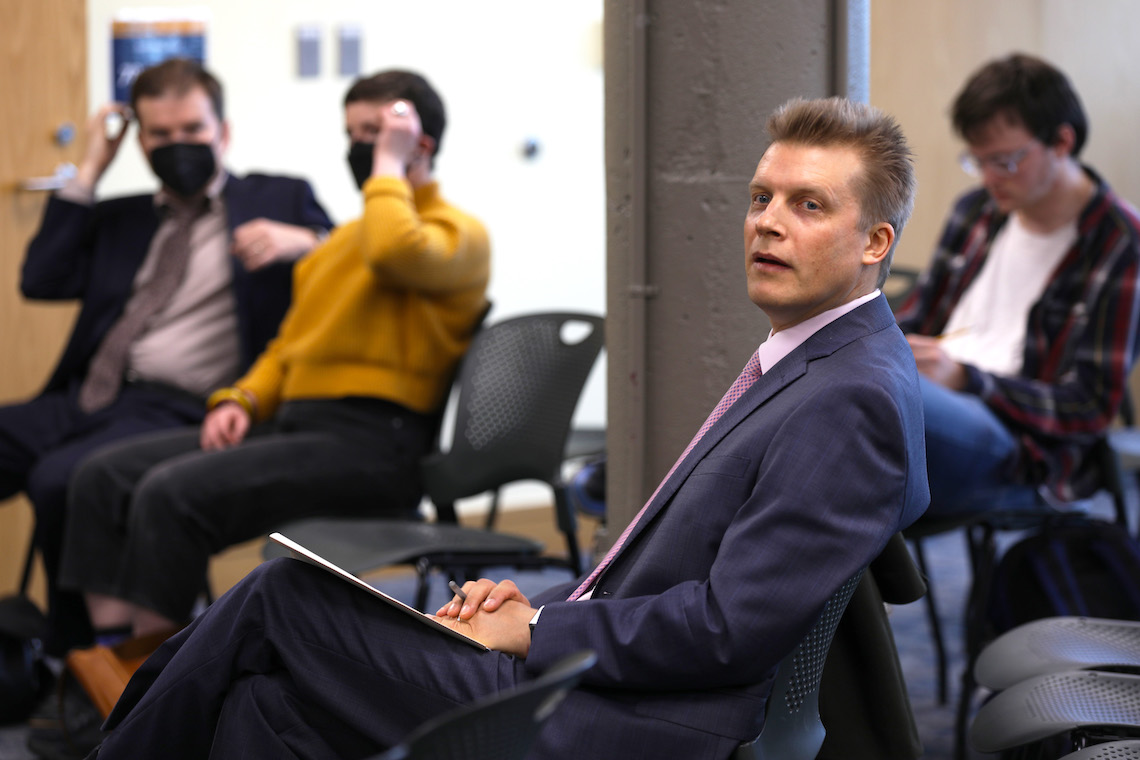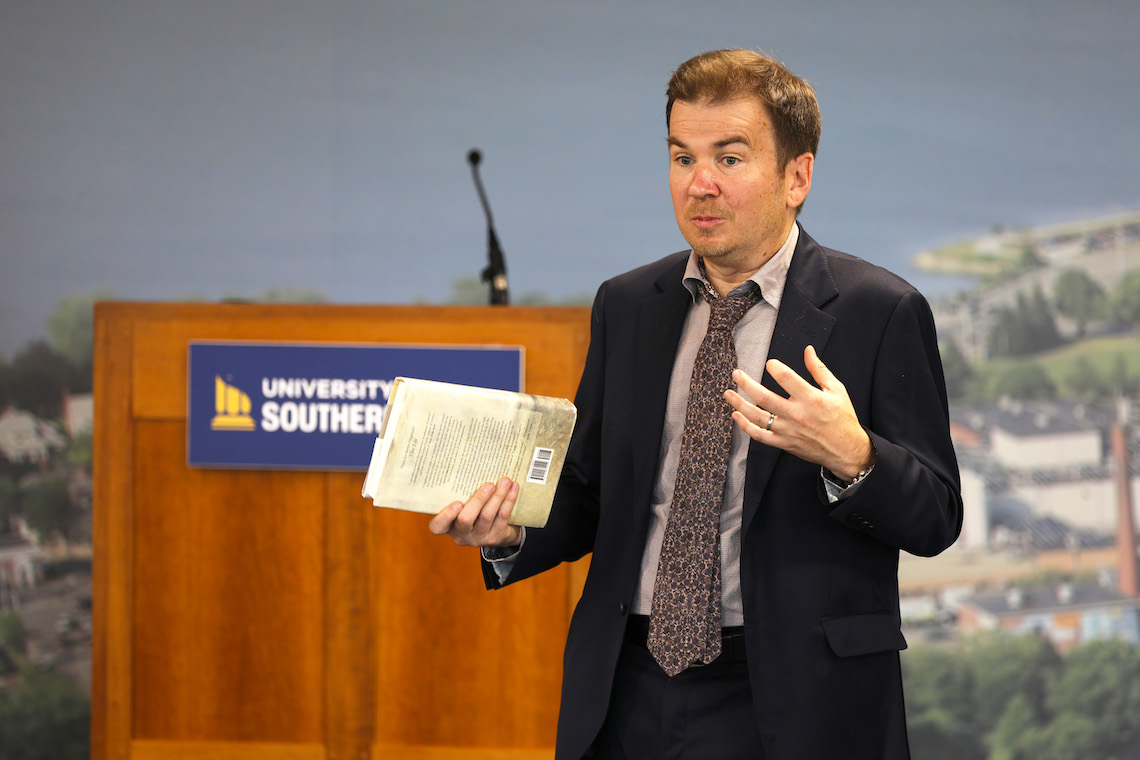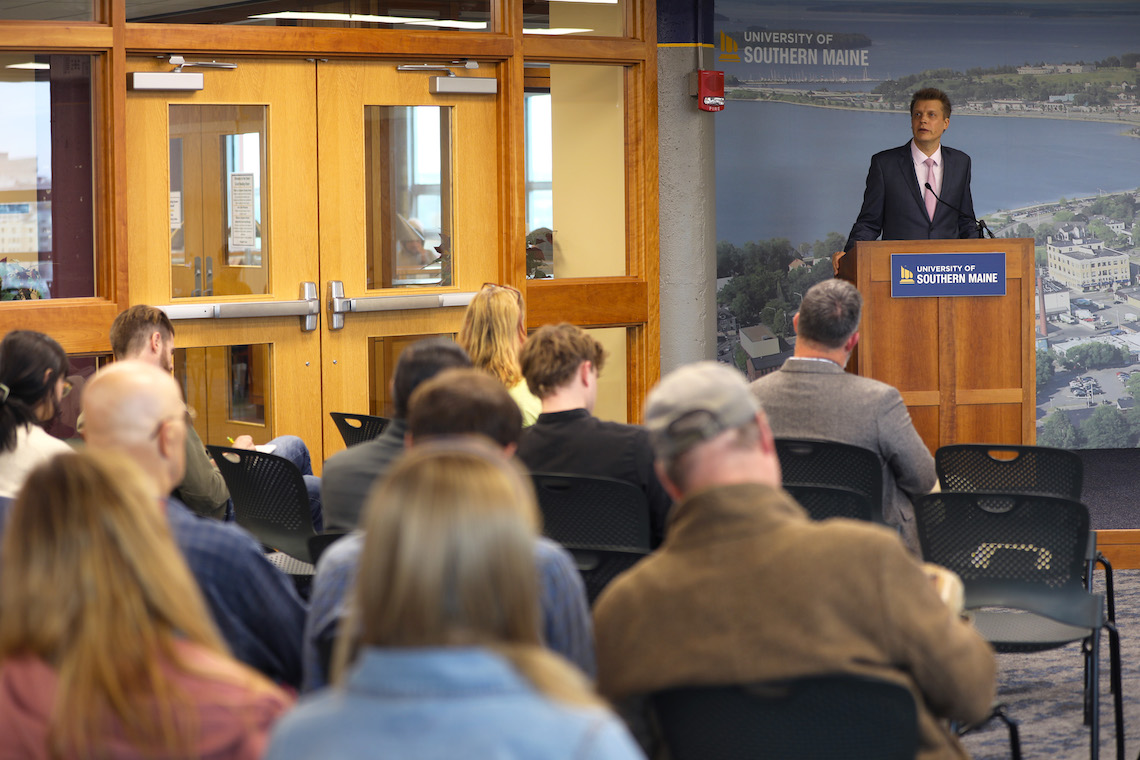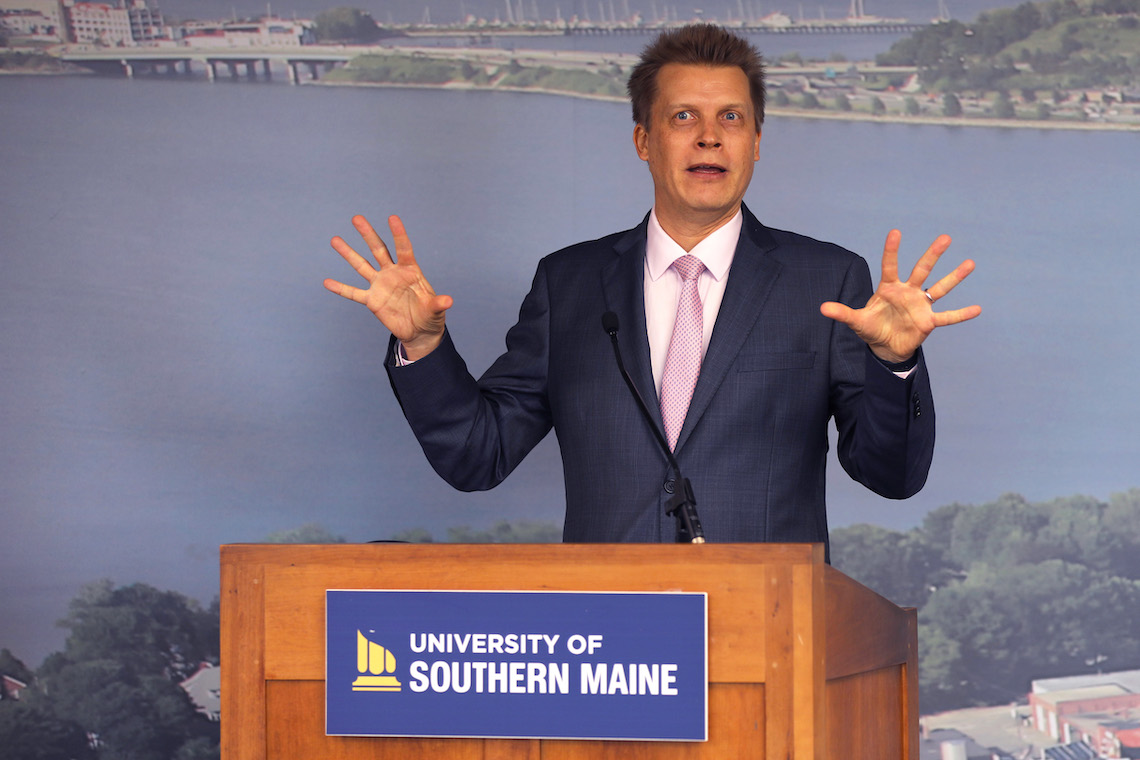
While impressive, the marble statues of history’s great philosophers don’t exactly exude friendliness. A new lecture series is projecting a friendlier face in order to make philosophy more accessible to a broad audience.
“I’ve been trying to, especially with my most recent books, really show what it can mean to practice philosophy in the public sphere,” said Dr. Martin Hägglund. “So, I was really glad to see that that was reflected in the invitation and in the mission of the series.”
Hägglund was invited to the University of Southern Maine by the Philosophy Department to be the inaugural presenter in the Louden Family Lecture Series. He spoke at Glickman Library in Portland on October 25. His lecture was titled “Thinking Ecological Responsibility: Marx and Species Being.”
The topic is an outgrowth of the ideas that Hägglund explores in his most recent book, “This Life: Secular Faith and Spiritual Freedom,” along with his teaching. He’s a professor of Comparative Literature and Humanities at Yale University.
Sydney Morrison is studying Hägglund’s book in her philosophy class at USM. She came to the lecture to see Hägglund give voice to his printed thoughts. Morrison is a junior majoring in Art History. Her philosophy studies let her see the world from a different perspective.
“I’m a curious person,” Morrison said. “I like learning, so any opportunity to further that personal development appeals to me.”

Morrison’s teacher is Dr. Jason Read. As the chair of the Philosophy Department, he was instrumental in arranging Hägglund’s visit. Hägglund impressed Read with his willingness to tackle big issues like the purpose of life and the unwritten terms of our collective social contract.
“We wanted him to talk about anything that would be of broad interest, not just to philosophers but to anyone,” Read said. “Environmental crises, as we’ve seen in recent years of all kinds of crazy weather events, are a more pressing issue than they have been.”
After a brief introduction by Read, Hägglund began building his argument. He borrowed Aristotle’s description of humanity as “rational animals.” He spent the next hour processing that idea through the philosophical lens of thinkers throughout history, ranging from Karl Marx to Bruno Latour.
Non-human animals, Hägglund reasoned, act from a sense of what needs to be done. And they know how to accomplish those goals through their natural instincts and abilities. For a beaver, life is about building dams by using its teeth to cut wood. Beavers are concerned with only the what and how of their lives. Humans are alone among animals with the ability to ask why.

Morality is a consequence of awareness. To a hungry lion, zebras exist as food without any autonomy of purpose. The lion’s lack of awareness outside of itself makes it exempt from morality. Humans have no such excuse. With understanding comes responsibility which extends to animals, other humans, and the entire environment that we all share.
Hägglund contrasted his conclusions against an economic model that views all life according to its monetary value. By accepting our responsibilities as rational animals, we can free ourselves from the cycle of consumption that threatens the environment. The pursuit of profit would be checked by attaching moral conditions to economic priorities.
“That is what I was trying to do,” Hägglund said, “taking this ecological question that’s very prominent now and showing what philosophical reflection can contribute to our concern with those issues.”
Several hands shot up from the audience when Hägglund opened the floor to questions. The conversation grew especially lively once Dr. Robert Louden entered the fray. Louden taught philosophy at USM for 40 years until retiring in 2022. As a parting gift to the University, he donated $300,000 to establish the Louden Family Lecture series.

Louden’s favorite philosopher is Immanuel Kant. He noticed echoes of Kant’s teachings in Hägglund’s presentation and asked if the similarity was intentional. The two experts went back and forth several times, clearly enjoying the level of discourse. Seeing other hands in the air, Louden ended their exchange but promised Hägglund that their conversation would resume privately over dinner.
Louden hopes the inaugural lecture will help the series generate interest for future installments. His dream is to attract a large and diverse crowd that combines the student body with members of the general public, united by their love of philosophy.
“It’s an experiment and it’s ongoing, but we’re off to a good beginning,” Louden said.
The future of the lecture series is already set. For next year’s presentation, organizers have tapped Dr. William Paris, an assistant professor at the University of Toronto who specializes in issues of race and politics.

